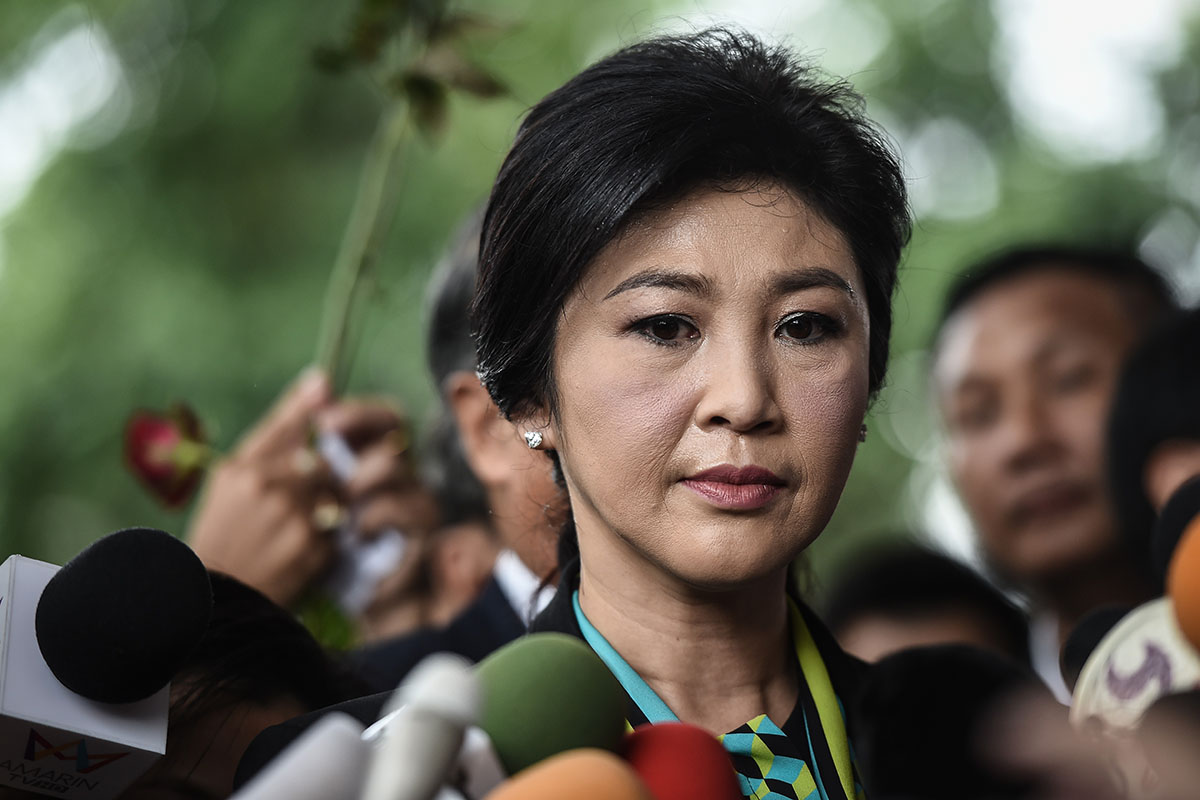Former prime minister Yingluck Shinawatra has been found guilty of corruption and negligence in her government’s rice-pledging scheme – which incurred losses amounting to 10 billion dollars. Thailand’s Supreme Court’s Criminal Division for Holders of Political Offices read its verdict today against Yingluck despite the absence of the former Thai prime minister. AFP (Agence France-Presse) quoted the judge, “the court found that the defendant is guilty as charged...the court has sentenced her to five years in prison and the court also unanimously agreed that the sentence will not be suspended.”
According to the verdict which was read in absentia, the leader "should have designated reasonable and effective regulations that could concretely prevent loss from the beginning of the programme." It also added that "the defendant did not take such precaution therefore contributing to huge losses to farmers, state budget, Ministry of Finance, the country and the people."
The Supreme Court was originally scheduled to read the verdict on August 25, 2017 but Yingluck’s departure from the country led to its postponement. As she failed to appear in court, the court was forced to delay its ruling and issued a warrant for her arrest. If she had been convicted in the earlier hearing, she would have to face a maximum jail term of 10 years and a lifetime ban from politics.
Yingluck, a member of the Pheu Tai Party, took office in 2011 as Thailand's 28th Prime Minister. She was the country's first female prime minister – and the youngest in 60 years – to take office at the age of 44. During her tenure, Yingluck focused on national reconciliation, poverty eradication and corporate income tax reduction. In 2014, Yingluck’s elected government was toppled by a military coup.
Though the former premier has not made any public appearances or comments since, she is believed to have fled the country to join her brother Thaksin who lives in a self-imposed exile in Dubai since 2006. Thaksin broke his two-year silence through a tweet by quoting an 18th century French philosopher which criticised the junta army.
Awaiting the verdict announcement, the leader of Thailand's military junta, Prime Minister Prayut Chan-o-cha earlier declared that he knew where Yingluck had fled to, but will not reveal her location until after the Supreme Court delivers its verdict. This was the first time that the military regime admitted to knowing Yingluck's whereabouts following her disappearance a month ago. When speaking to reporters, he also added, “she has not yet applied for political asylum, and I don’t know whether she will be able to get it.”
“She hasn’t contacted me at all since last month,” Norawit Lalaeng, Yingluck’s lawyer, told AFP.
The director of ISIS (Institute of Security and International Studies) Thailand, Thitinan Pongsudhirak told AFP that “the heavy sentencing would jack up Thailand political temperature but is unlikely to trigger any 'cataclysmic' forms of unrest.” He further elaborated that “if tomorrow’s ruling is harsh and seen as unjust, it will exacerbate and build up frustration on one side of Thailand’s polarised society.”
According to AFP, Thailand's deputy junta leader, Pravit Wongsuan is also investigating three police officers who allegedly assisted the former premier to flee the country. They alleged drove Yingluck to the border of Cambodia, where she informally entered the neighbour nation before flying off to another country. However, the policemen would not be prosecuted as there was no arrest warrant issued for Yingluck at that time.
